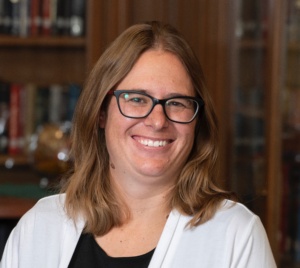In fall of 2019, I joined the Hubbard School of Journalism and Mass Communication at the University of Minnesota as an Associate Professor, where I hold the Don and Carole Larson Professorship in Health Communication. It’s been fantastic to be home in the Midwest, although I’m not loving the very cold winters.
I use my research to investigate methods to encourage more high quality information consumption and production on social media. My research has found that correcting health misinformation on social media reduces misperceptions among those seeing the interaction, but requires us to be proactive in responding with credible information. In addition, my work into news literacy suggests that reminding people of their own biases can help them be more fair news consumers, but it can be difficult to encourage skepticism of misinformation without generating cynicism towards all information, and can also sometimes reinforce partisan divides. While news literacy holds promise, more work needs to be done to consider how news literacy knowledge intersects with self-efficacy, perceptions of social norms, and attitudes.
I particularly focus on these relationships in the digital arena, where so many of our interactions now take place. Likewise, we must consider the political implications of our studies beyond simple partisan politics. Most of our societal decision-making is political; whether it’s health funding, working with tech companies to address online misinformation, or proposing policy solutions for climate change, mobilizing people on a large scale is inherently political.
Because my research brings together diverse perspectives from health, politics, science, and journalism, I highly value collaborative work. It also requires me to embrace diverse methodologies to better match the evolving media environment, including experimental designs, survey research, eye tracking, and qualitative interviews. I have published over 80 scholarly journal articles on these topics in a range of journals.
I also think it’s important to share what I do and what I find with the public. I invite opportunities to talk about the practical meaning of my work for how we can all work to make society a better place.
Teaching is an important part of this equation. I love teaching and mentoring students, helping them to learn more about the ways in which communication fundamentally shapes society and their own role in this process. I will always remember my first undergraduate class in journalism and media. It forced me to think about my interactions with the world in a new way and inspired me to pursue a life studying media effects. I love being the person who introduces these ideas to undergraduate students.
My love of research was fostered in the School of Journalism and Mass Communication at the University of Wisconsin-Madison, where I received my Ph.D. in 2011 with a minor in Political Communication. I moved to the DC area to serve as a Post-Doctoral Research Instructor in the School of Media and Public Affairs at George Washington University from 2011-2012, working with Dr. Robert Entman and Dr. Kimberley Gross to examine how the media and the polls framed the 2009-2010 debate over health care reform. I then made the short journey across the Potomac to accept a position at George Mason University. I was a faculty member in the Department of Communication at GMU from 2012-2019, where I served as the Director for the interdisciplinary Political Communication Minor, and the Political Communication Concentration in the department. I was also affiliated with the Center for Climate Change Communication.
Outside of academia, I love spending time with my family, baking (especially cookies!), reading novels, and being active outside as much as possible (except during the winter). I also love to travel and have a long wish-list of places to visit.
